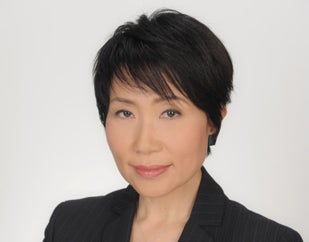

"I aim to make the GEF a coalition of partners greater than the sum of its parts."
This latest issue of the Global Environment Facility's Greenline newsletter exemplifies the scope and breadth of expertise resident in this organization dedicated to the betterment of the global environment. This depth of experience at the GEF is one of the reasons why I am so energized to be joining the organization as CEO and Chairperson. In this issue, you will learn about the role of technology transfer in addressing climate change, about the promise of smart-grid technology to making earth a cleaner, more energy-efficient planet, and about the GEF's extensive support for climate change mitigation and adaptation programs.
You will read about the GEF's role in the Montreal Protocol, widely regarded as the most successful international environmental agreement, and you will see why the GEF Small Grants Programme is such an important ingredient in the development of successful environmental programs and the establishment of partnerships with communities around the developing world. Also In this issue, you will come to understand the painstaking work that goes into evaluating the level of success achieved by GEF projects and programs. The message is clear: When the GEF supports environmental projects with grant funding, our work is only beginning. We follow through and make sure the funds we invest are having their intended effect.
I begin my tenure as CEO with a great sense of energy and enthusiasm about our mission of supporting countries in achieving their sustainable development goals through innovative, scalable and well-managed environmental programs. The global economy is facing challenging times, with no region of the world completely immune. Against these pressures, the ability of the GEF to identify projects and programs that foster economic development while protecting the environment will be particularly important. We live at a critical time when environmental challenges are so compelling that food, energy, and water are under grave threat. The GEF can meet this challenge by bringing projects and programs up to scale. Collaboration with GEF partners, donor nations, and developing countries, combined with the experience the GEF has acquired of what works best, and what does not, will help leverage additional financing from other sources that will make it possible to scale up successful programs.
In the face of economic as well as environmental challenges, it is imperative that the GEF continue to fulfill its role of bringing multiple stakeholders together and catalyzing the private sector to form sustainable partnerships. It is GEF's purpose to promote transformational change in these difficult times. We cannot succeed in fulfilling this mandate unless we strengthen our existing partnerships and cultivate and build new ones. Looking to the future, I am positive that the GEF can play an instrumental role in catalyzing the private sector's sustained involvement in global environmental efforts. The energetic participation of the private sector in the recent United Nations Conference on Sustainable Development (Rio+20) highlights the potential for new partnerships to address global environmental challenges in an innovative manner. The private sector brings not only financial resources but also makes scientific and technological contributions which can help us transform the way we tackle environmental problems.
There has been a great deal of discussion about the lack of a sweeping new consensus in the field of environment and sustainable development. A universal consensus on environmental challenges is a worthy goal, and in critical areas such as climate change and the health of our oceans, the threats to our environment are increasing at an alarming rate. But the absence of a sweeping consensus does not mean that we remain standing still. Rio+20 witnessed the birth of numerous coalitions involving businesses, cities, and civil society organizations (CSOs) working together on promising new initiatives and commitments. I intend to make the GEF an integral part of those new movements and a promoter of cutting-edge ideas.
Forging effective partnerships and coalitions behind an ambitious global environmental agenda requires careful, persistent and effective communication. I believe the GEF is ready to shift from being a 'silent partner' in the global environmental community to having a more active voice in sharing the experience and knowledge we have acquired over two decades. It is also time for the GEF to forge ahead with strengthening the coalition of partners in the stewardship of global commons so that we can be united in a common effort. This approach will be crucial to my goal of making the GEF coalition of partners greater than the sum of its parts in order to maximize the impact of the GEF-financed projects and programs on the ground. I strongly believe that the dual goals of environmental protection and sustainable economic development are inseparable, and that healthy ecosystems are essential to securing food, energy and water, and to achieving sustainable development. As CEO of the GEF, I will step up our effort to become an integral part of the leadership efforts to create a critical mass, achieve sustainable impacts on a global scale, and reverse worrisome environmental trends.
My hands-on experience working for international financial and development institutions and the Government of Japan tells me that securing continued robust funding support requires, first, clearly assessed needs and goals within the context of priorities set by recipient countries; second, a clearly articulated strategy to achieve those goals; and third, obtaining and maintaining the confidence of donors in our ability to deliver results. Those ingredients are in place at the GEF. Most of all, the institution has talented and dedicated staff, a robust network of very capable Agencies, and a relationship of trust with our 182 member countries. As the newly appointed CEO and Chairperson of the GEF, I will rely on that experience and on valued partners and colleagues in developing and expanding GEF programs, cementing the GEF's reputation as an honest unbiased champion of the global commons, convening key players and creating the context within which good decisions can be made.
Dr. Naoko Ishii was unanimously selected by the GEF Council in June to become the organization's CEO and Chairperson. Her term in office began August 1st.
